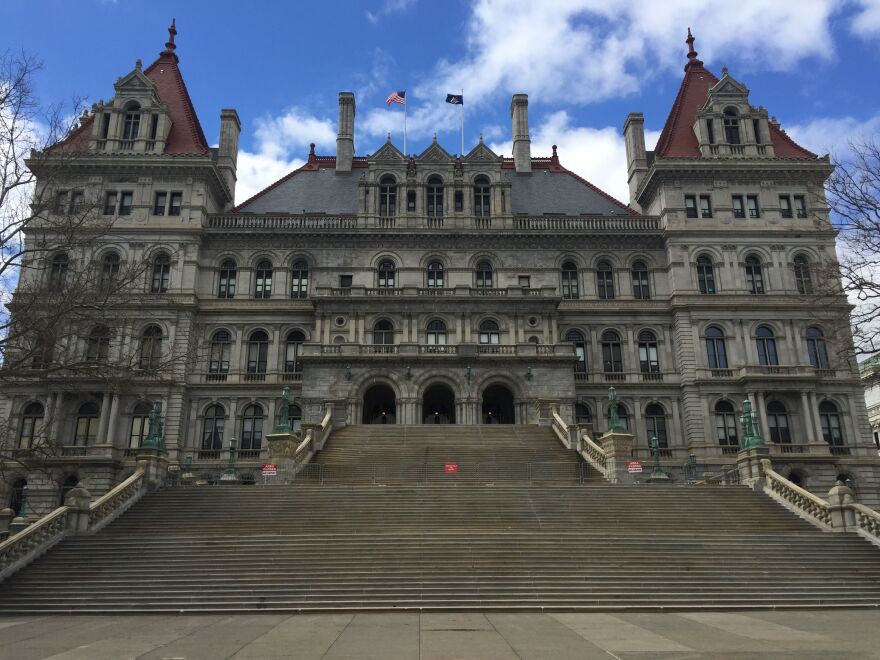The New York State Assembly and Senate began passing their versions of the state budget Monday – and both houses, led by Democrats, propose spending more than $6 billion above Democratic Gov. Kathy Hochul’s spending plan.
Assembly Speaker Carl Heastie said his house is adding an additional $3 billion to help fix a broken child care system and revive the economy. He said it includes money to pay workers higher wages and subsidize costs for lower-income parents.
“The expansion of child care is very important,” said Heastie, who added that without adequate child care, many women have to choose between caring for their children and going to work.
The Senate is proposing over $4 billion in additional funds for child care, saying the goal is to provide “universal” access.
Senate Finance Committee Chair Liz Krueger said both houses also want to reduce chronic shortages of home health care workers by boosting what are often poverty-level wages.
“We need to be able to pay them a wage that even provides them enough money to pay for a car to drive to their job,” Kruger said. “And right now, the wages are so low, they can’t even afford to take the jobs.”
Hochul’s $216 billion budget plan already increased state spending by more than 5% from the previous year. She was able to do so because of generous federal relief packages earlier in the pandemic, and higher-than-expected tax collections, including a new income tax surcharge on the wealthy.
Fiscal watchdog groups warned that the final budget should not spend more than the governor has proposed.
The Citizens Budget Commission’s Patrick Orecki said with the additional funds, Hochul and the Legislature have been given a rare opportunity to finally end New York’s chronic year-to-year budget deficits.
Orecki said the governor’s plan is carefully balanced to rein in projected deficits until 2026. He said any additions would result in higher future budget gaps before then.
“Any new spending that you layer on top of what was already in the executive budget is just going to create a gap in the out years,” Orecki said.
Both houses say their plans are balanced for the next two years, but could not say whether their spending plans would create deficits after that.
Orecki also said lawmakers should put aside more money in reserve funds. He said the governor’s budget proposed that $5 billion be set aside, but the Senate and Assembly budgets reduce that amount by $1.8 billion.
He said New York’s finances are more precarious than in many other states.
“New York state has a pretty potentially volatile revenue stream, relying a lot on ultra-high-income earners and the performance of the stock market,” he said.
The Legislature’s budget plans, in a departure from past practices, leave out many items that the governor said were important to her, including authorizing alcohol-to-go for the state’s restaurants, a revamping of the troubled state ethics commission and term limits for statewide elected offices.
In recent decades, governors have increasingly included in their budgets policy items that are not directly related to state spending because they have more leverage over lawmakers during the budget process than during the rest of the year.
Heastie said the Democratic conference in his house wants to end that practice and keep the state spending plan separate from other issues.
“I’m not trying to send Governor Hochul a message, I’m just relaying the feelings and sentiments of the conference,” said Heastie. “They just want to put forward a fiscal document.”
The speaker said he expects the budget talks over the next few weeks with the governor to go smoothly. He said Hochul has set the tone by extending an olive branch to the Legislature, compared with the actions of past governors. She has left a $2 billion pool of money from the federal relief funds so that the governor and Legislature can decide together how best to spend it.
The budget is due by April 1.








